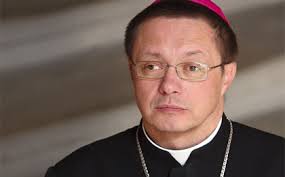Vänner,
Främlingsfientligheten i det katolska Polen är en plågsam påminnelse om att det inte räcker att säga ”Herre, Herre”. Men det finns också klart lysande undantag.
När påven deltog i en korsvägsandakt under världsungdomsdagen i Krakow var texten till en av stationerna formulerade av Grzegorz Rys, hjälpbiskop i Krakow. Jag citerar ett refereat i The Tablet:
“Lord Jesus, at the beginning of your journey to Jerusalem, and thus to death, you were rejected — they would not welcome you because you were a stranger. Because you belonged to a different nation, professed a different religion.
“All of this, Lord, sounds frighteningly familiar — as if taken straight from our newspapers, reminiscent of the situations on our own streets. We refuse to welcome people who are looking for a better life, who are sometimes just fending for their lives (under the threat of death), who knock on the doors of our countries, churches, and homes. They are strangers, we see in them enemies, we are afraid of their religion, and even their poverty!”
It goes on: “Instead of hospitality they find death: on the coasts of Lampedusa and the Greek islands, in crowded refugee camps. Refusal to accept easily becomes the real death sentence. On them, and so on you, Lord! In the last few years, you have been sentenced to death in the persons of 30,000 refugees. Sentenced — by whom? Who will agree with this sentence?”
Polen utmärker sig för en mycket flyktingfientlig politik. Men likgiltigheten inför massdöden på Medlehavet är inte en enbart polsk eller östeuropeisk skam. I Sverige liksom i så många andra västeuropeiska länder beskriver ordet flyktingkris inte längre flyktingarnas nöd utan välfärdsstatens problem när flyktingarna blir så många att de märks.
Gert Gelotte


